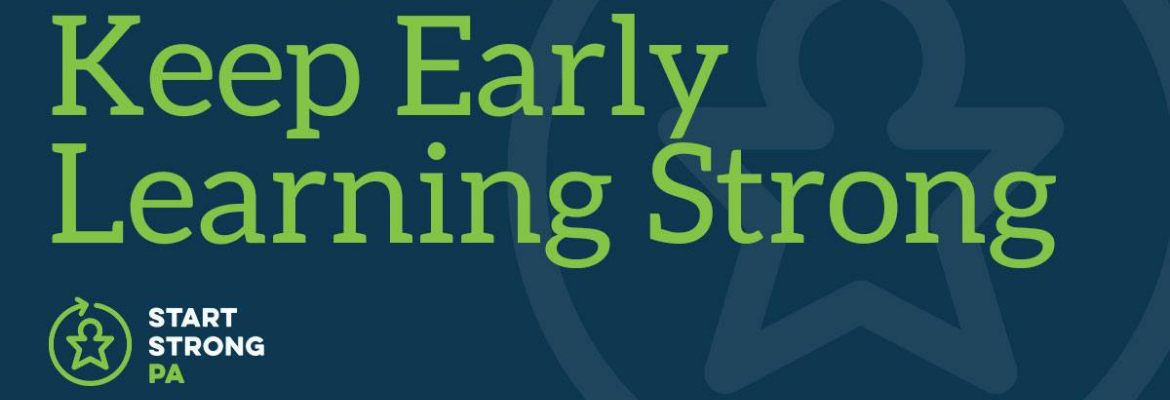Business Resources
 Information for Businesses (Updated 2/23/2024)
Information for Businesses (Updated 2/23/2024)
Quality Care affects the business community
When your employees have access to quality care, they can:
- focus on their work
- be more productive, and
- stay at their jobs longer
"Family first, firm second: It’s why having available and affordable quality child care options matter so much to employees and businesses."
Jack Brennan, Chairman Emeritus, Vanguard
Business leaders understand workforce quality
"Business leaders know a quality workforce matters. Investing in quality early learning settings can lead to more children starting school ready to learn. When children start school ready to learn, they are more likely to experience positive academic and health outcomes, which in turn will lead to a stronger future workforce and more engaged citizens. Businesses understand the concept of return on investment — a higher rate of return in productivity and income is derived from improving the quality of our human capital development." The Committee for Economic Development (CED)
For businesses and communities that want to recruit people into the region, families often look at child care and education options before making employment and relocation decisions.
The Workforce Command Center identified access to and affordability of child care as a barrier for employees and job seekers who cannot go to work without having an affordable plan for the care of their children. If affordable, high-quality child care providers do not exist or are not accessible either near a family’s home, work, or along the route from home to work, parents and guardians cannot pursue employment or may face major barriers in the workplace. Pennylvania Keystone Economic Development and Workforce Command Center Annual Report, January 2020
Employer’s Questions
Why should I worry about providing child care for my employees?
Since 1.2 Million of Pennsylvania’s children under 13 have a working parent or parents, it is likely that one or more of your employees requires child care. According to the Child Care Works, “The average parent loses eight days of work every year because of child care problems.” Providing child care for your employees, you can reduce absenteeism and turnover, thus increasing employee morale and productivity. When your employees do not have to worry about child care, they can more effectively focus on their jobs.
- NEW: Employing And Engaging Families with Young Children (February 2024), Early Learning Investment Commission
- NEW: The Workforce Of Tomorrow Requires A Child Care System Fit For The Future, Isabelle Hau writing for Forbes (8/2/2022)
- High-Quality Early Childhood Programs are Key for a Strong Pennsylvania, (April 2022) Council for a Strong America
- Investments in Caring PA, an initiative of the Pennsylvania Early Learning Investment Commission
- Employers Consider Child Care Subsidies, SHRM, the Society for Human Resource Management (2020)
- Early Childhood Education: A Call to Action from the Business Community (PDF), The Business Roundtable
- Employer Options for Child Care: Effective Strategies for Recruitment and Retention, Pennsylvania State University, 2001 (PDF)
- Questions and Answers about EMPLOYER-SUPPORTED CHILD CARE: A Sloan Work and Family Research Network Fact Sheet, Sloan Work and Family Resource Network
I don’t have the capability to start up a child care program at my office. What else can I do to help my employees receive adequate child care?
By helping your employees get good information on child care in your area, and by creating a supportive environment in which they can take the time to find child care that meets their needs, you are providing an invaluable service to working parents. For information on child care providers in your area, contact your local Early Learning Resource Center. See a list of some of the Early Learning Resource Centers that are PACCA Members.
The U.S. Chamber of Commerce Foundation has developed this toolkit to provide resources to enable the business community to advance access to high-quality, affordable child care to support employees, the broader community, and the country. This includes key facts and an elevator speech on childcare, a tactical guide with tangible ways that the business community can make an impact, and case studies that illustrate best practices and lessons learned for how to engage.
Leading the Way: A Guide for Business Engagement in Early Education (October 2017)
Workforce of Today, Workforce of Tomorrow (June 2017)
I am interested in starting a program at my office. How do I begin?
Investments in Caring PA, an initiative of the Pennsylvania Early Learning Investment Commission, is Pennsylvania's resource for employers to assist their employees in finding access to quality care.
The following articles will be helpful:
- Starting and Operating a Child Care Business, State Capacity Building Center, Administration for Families & Children
- What Does It Take to Operate A Child Care Facility?






